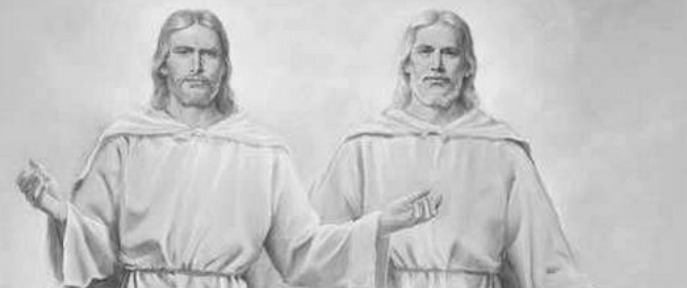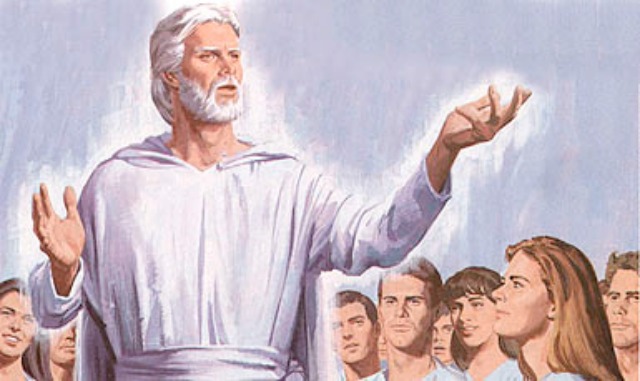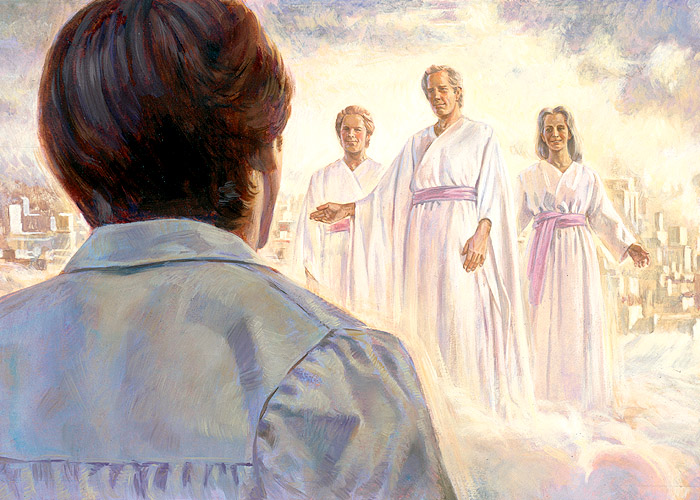Gramps,
About Mormonism; how many Gods, anywhere and everywhere, do Mormons believe exist or can exist?
Buzz
Dear Buzz,
Interesting question. W.W. Phelps was an associate of the Prophet Joseph Smith, and he wrote a hymn which is included in today’s Mormon hymn books as hymn No. 284. The first three verses are as follows—
If you could hie to Kolob in the twinkling of an eye,
And then continue onward with that same speed to fly,
Do you think that you could ever, through all eternity,
Find out the generation where Gods began to be?
Or see the grand beginning, where space did not extend?
Or view the last creation, where Gods and matter end?
Methinks the Spirit whispers, “No man has found ‘pure space,’
Nor seen the outside curtains, where nothing has a place.”
The works of God continue, and worlds and lives abound;
Improvement and progression have one eternal round.
There is no end to matter; there is no end to space;
There is no end to spirit; there is no end to race.
So the Mormon Church talks about the generation of the Gods. The question is, where do they get that idea. First, we go to the Bible—
For though there be that are called gods, whether in heaven or in earth, (as there be gods many, and lords many,) But to us there is but one God, the Father, of whom are all things, and we in him; and one Lord Jesus Christ, by whom are all things, and we by him (1 Cor 8:5-6).
That is similar to saying something like “Although everybody has a father, I and my siblings have only one father.” God is indeed the Father of the spirits of all mankind. In fact, the word, Father, is the most frequent term in the New Testament used to refer to God—
Furthermore we have had fathers of our flesh which corrected us, and we gave them reverence: shall we not much rather be in subjection unto the Father of spirits, and live? (Heb 12:9)
Very little is mentioned in the scriptures about where God may have come from. However, there is one revealing statement by the Lord, Jesus Christ, who said—
Verily, verily, I say unto you, The Son can do nothing of himself, but what he seeth the Father do: for what things soever he doeth, these also doeth the Son likewise (John 5:19).
Would that suggest to you that God, the Father, was the Savior of his generation?
For a more complete explanation of this doctrine we must go to modern revelation–and here we will try not to be too verbose, but a full explanation of the subject could fill a book.
There are three degrees of glory in the eternities–the telestial, reserved for the wicked; the terrestrial, reserved for the righteous who do not recognize the Savior as their Redeemer; and the celestial, available to all those who accept the Savior as their Redeemer and who live in accordance with all the laws and ordinances of the gospel of Jesus Christ. And in this celestial kingdom there are also three major divisions—
We read in Doctrine & Covenants 131:1-4, that—
In the celestial glory there are three heavens or degrees; And in order to obtain the highest, a man must enter into this order of the priesthood [meaning the new and everlasting covenant of marriage]; And if he does not, he cannot obtain it. He may enter into the other, but that is the end of his kingdom; he cannot have an increase.
The new and everlasting covenant of marriage is an expression for the concept of eternal marriage– i.e. a man and a woman may be sealed together as husband and wife for all eternity, which ordinance of the gospel is so sacred that it may be performed only in the Lord’s holy temples, and is consummated by the power of the holy priesthood. Such faithful and fully obedient couples are said to achieve exaltation in the celestial kingdom. This concept is alluded to in the Bible as—
The Spirit itself beareth witness with our spirit, that we are the children of God: And if children, then heirs; heirs of God, and joint-heirs with Christ; if so be that we suffer with him, that we may be also glorified together (Rom 8:16-17).
In the Doctrine and Covenants we read—
And again, verily I say unto you, if a man marry a wife by my word, which is my law, and by the new and everlasting covenant, and it is sealed unto them by the Holy Spirit of promise, by him who is anointed, unto whom I have appointed this power and the keys of this priesthood; and it shall be said unto them–Ye shall come forth in the first resurrection…. and they shall pass by the angels, and the gods, which are set there, to their exaltation and glory in all things, as hath been sealed upon their heads, which glory shall be a fulness and a continuation of the seeds forever and ever. Then shall they be gods, because they have no end; therefore shall they be from everlasting to everlasting, because they continue; then shall they be above all, because all things are subject unto them. Then shall they be gods, because they have all power, and the angels are subject unto them (D&C 132:19-20).
That should give you a thumbnail sketch of the Mormon doctrine that addresses your question. The way people react to these sacred truths of eternity reminds me of the two caterpillars that were talking with each other as a butterfly flew overhead. Looking up, one of the caterpillars said to the other, “you’ll never get me up on one of those things!”
Gramps







